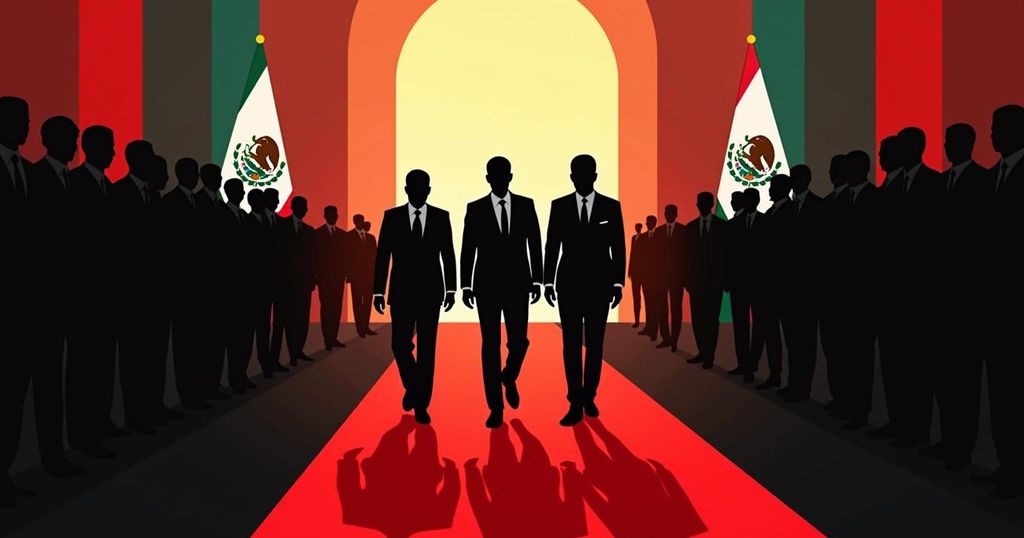Claudia Sheinbaum’s Governance: A Troubling Start for Mexico

Claudia Sheinbaum’s invitation to Cuban and Venezuelan leaders for her inauguration, along with her support for controversial judicial reforms, may jeopardize U.S. investments and diplomatic relations at a time when Mexico’s economy is facing challenges.
The incoming Mexican president, Claudia Sheinbaum, is exhibiting alarming tendencies that may jeopardize the nation’s economic stability and international relations. Her enthusiastic support for a controversial judicial reform is already discouraging U.S. investments at a time when Mexico’s economy is struggling, with growth forecasts dwindling to 1.5% for 2024 and 1.2% for 2025. Additionally, her decision to extend invitations to international leaders, notably the autocratic rulers of Cuba and Venezuela, for her upcoming inauguration raises serious concerns regarding her diplomatic priorities. Sheinbaum, aligned with the populist views of her predecessor Andres Manuel Lopez Obrador, should be cautious about alienating both Mexico’s business sector and key trading partners. The impending renegotiation of the United States-Mexico-Canada Agreement (USMCA) necessitates a cooperative approach towards maintaining robust trade relations, as a significant 80% of Mexico’s exports are directed towards the U.S. market. The judicial reforms Sheinbaum supports have triggered apprehensions regarding legal protections for investors, as they may allow the executive branch undue control over judicial matters. According to U.S. Ambassador to Mexico Ken Salazar, this reform poses a risk to the longstanding trade relationship between Mexico and the U.S. Moreover, the decision to invite foreign dictators while excluding democratic leaders, such as the King of Spain and the presidents of Ecuador and Peru, reflects an inconsistent and alarming stance. By welcoming the leaders of nations with questionable human rights records, she contradicts the need for a diplomatic approach that could foster investment and growth in Mexico. Notably, the absence of Spain’s King Felipe VI is rooted in a long-standing dispute regarding historical grievances, leading to Spain’s refusal to send an official delegation to the inauguration, which Sheinbaum has celebrated as a triumph against perceived offenses. In conclusion, President Sheinbaum’s initial actions, including her embrace of authoritarian figures and contentious judicial reforms, signal a troubling commencement to her administration. She must recalibrate her focus towards nurturing Mexico’s investments and enhancing diplomatic relations to secure a prosperous future for the country.
The political landscape in Mexico has recently shifted with the election of Claudia Sheinbaum, a close ally of former president Andres Manuel Lopez Obrador, whose administration faced criticism for its handling of economic and diplomatic affairs. As the new president prepares to take office, the implications of her initial policy decisions are under scrutiny. Specifically, her support for judicial reforms and her decision to invite leaders from authoritarian regimes for her inauguration raise questions about Mexico’s future engagement with both its business sector and international allies.
In summary, Claudia Sheinbaum’s early decisions as president carry significant implications for Mexico’s economic prospects and international relations. By aligning with dictatorial regimes and backing a controversial judicial reform, she risks undermining the trust of investors and complicating diplomatic ties with important trade partners, particularly the United States. To foster a stable and prosperous environment, it is crucial for her administration to prioritize economic growth and diplomatic engagement over political ideologies that may alienate essential allies.
Original Source: www.miamiherald.com







